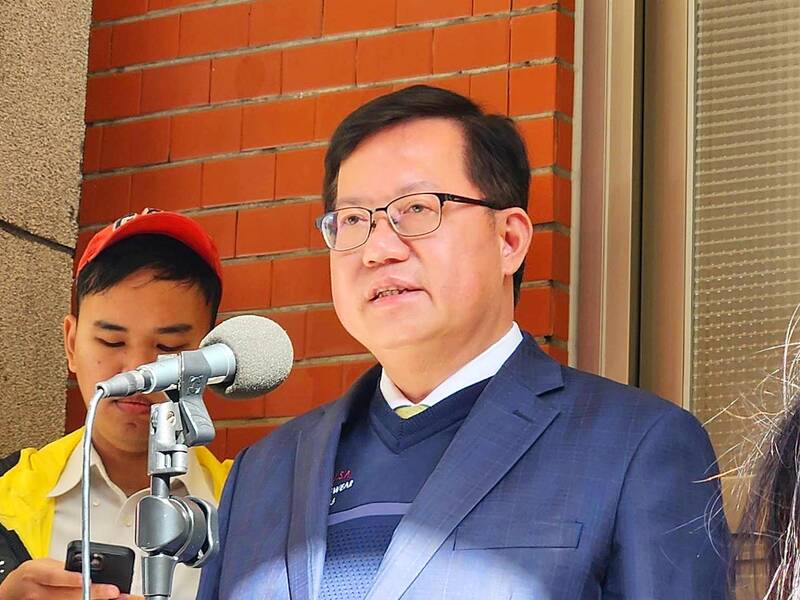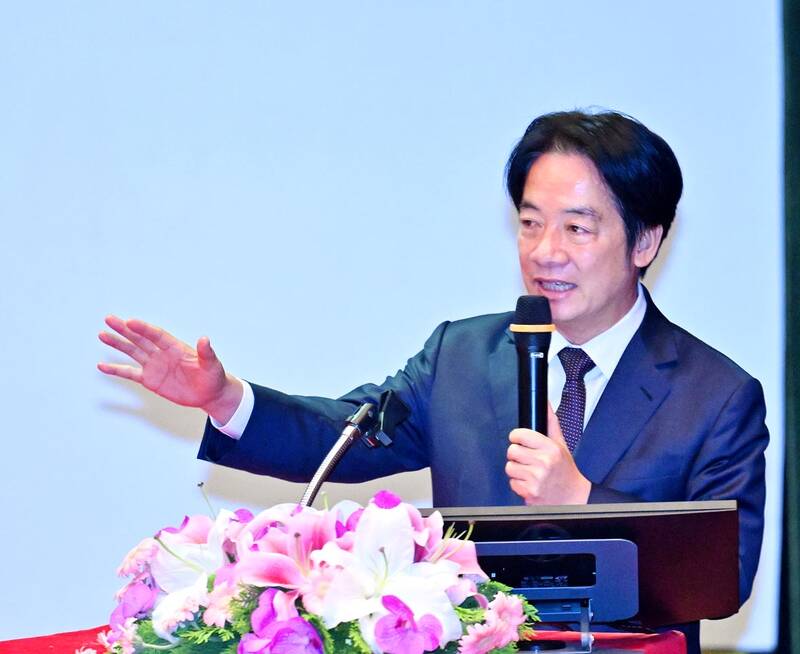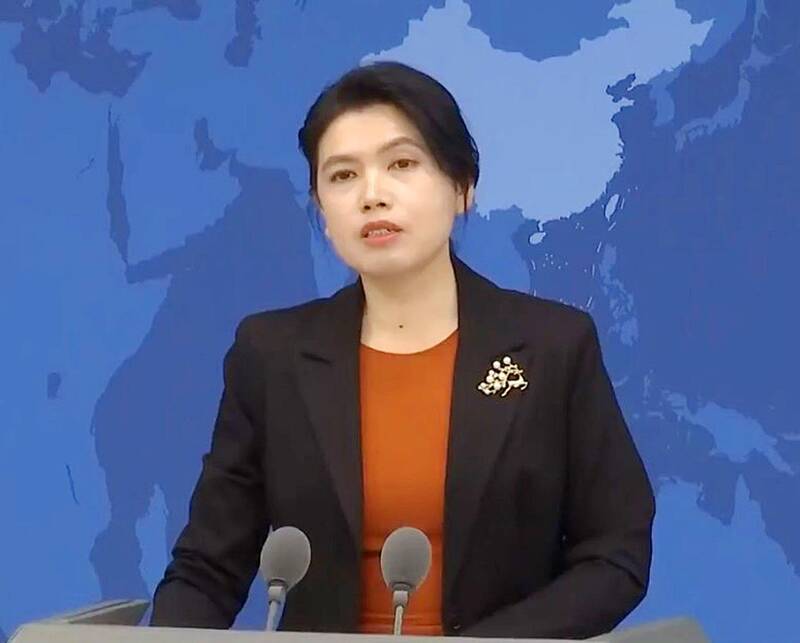By far the most jarring of the new appointments for the incoming administration is that of Cheng Wen-tsan (鄭文燦) to head the Straits Exchange Foundation (SEF). That is a huge demotion for one of the most powerful figures in the Democratic Progressive Party (DPP).
Cheng has one of the most impressive resumes in the party. He was very active during the Wild Lily Movement and his generation is now the one taking power.
He has served in many of the requisite government, party and elected positions to build out a solid political profile. Elected as mayor of Taoyuan as part of the “green wave” of 2014, he was one of the few DPP mayors to win re-election in the Chinese Nationalist Party (KMT) “Han wave” landslide in 2018 with the highest voter turnout for a winning mayor at that time in Taoyuan’s history.

Photo: Hsieh Chun-lin, Taipei Times
When Su Tseng-chang stepped down as premier in January of last year, Cheng was high on everyone’s list of potential replacements. If Cheng had not been caught up the thesis craze of 2022 and had his master’s degree revoked, he quite likely would be the premier now.
Instead, he was appointed vice premier — or Vice President of the Executive Yuan as it is formally known — and since he was serving under a former vice president, this was still a respectable and face-giving position.
He also, like president-elect William Lai (賴清德) and current Control Yuan President Chen Chu (陳菊), has his own subfaction of the DPP’s most powerful faction, New Tide. By almost all political standards he is more of a heavyweight that the incoming premier Cho Jung-tai (卓榮泰) and arguably better than incoming foreign minister Lin Chia-lung (林佳龍). Cheng towers over everyone else in the cabinet.

Photo: Liu Hsin-de, Taipei Times
Yet, he got the lowly position of head of the SEF, which serves to carry out instructions given by the Mainland Affairs Council (MAC). The MAC is in charge of setting out policies related to China, but to get around the mutual diplomatic non-recognition, the actual exchanges between the two sides are conducted by the officially private — but government-financed — SEF.
That was the way it used to work. Ever since the election of Tsai Ing-wen (蔡英文) as president in 2016, the Chinese side cut off all contact demanding that the Tsai administration accept the so-called “1992 consensus.” Essentially, the SEF has been twiddling their fingers for the last eight years with nothing to do.
The local press has been running stories using terms that are equivalent to “consigned to the trash heap of history” and that Cheng is being played like a “marionette.” This is possible, and it seems to be the most popular theory, but there is another possibility.

Photo: Chen Yu-fu, Taipei Times
IS LAI PUTTING CHENG DOWN?
It is possible that Lai is playing a political game and sidelining a potential rival or is punishing Cheng for past grievances. Despite his placid demeanor, Lai did not get to the pinnacle of power in both the DPP and in May the nation, without knowing how to wield a political knife.
Most famously Lai launched a stealthy last-minute primary challenge to Tsai in 2019, leaving her virtually no time to respond and in spite having promised her that he would not do so. Tsai and her supporters managed to rig the rules to get the primary date pushed back, and pushed back yet again, to give herself time to respond. Tsai is just as wily of a political knife-wielder as Lai, and in this case proved she was the better of the two and won in spite of many predicting Lai would.
That incident fractured the party badly in the run up to an election and reluctantly Tsai took Lai on as the vice presidential candidate, but she made him pay for it by keeping Lai in the doghouse for the first year or two and relegated him to glorified ribbon-cutter. It is unclear if their relationship has softened or not since, but at the very least in the interests of the future of the party eventually Tsai gave Lai more dignified tasks that would burnish his reputation for the election this January.
At least one well-known local political commentator thinks that Lai is punishing Cheng for having been too close to Tsai and the Ing faction named after her in the past. This may be partially true and they had a strong personal relationship, but Cheng is a member of the same New Tide faction as Lai, so this seems a stretch, though still possible.
Another possibility is that Lai wants to diminish Cheng and his subfaction within New Tide to give more power to his own Lai faction. Power and influence tend to go those with high office, and Lai is about to take over the most powerful position in the land.
Yet Lai publicly announced he was resigning from New Tide after winning the election. If that means anything in practice, it is hard to say, and he did get a large number of his people appointed in the new government, so this theory is also possible, but hardly a slam dunk.
Other possibilities include Lai simply does not like him, or thinks he is damaged goods following the thesis scandal.
IS LAI SIGNALLING TO CHINA?
The problem with all those theories is that Cheng took the job. Cheng has one of the strongest political records in the country and knew full well how this was going to look like a huge demotion in the public eye. Why did he not just say ‘no’?
I think there is high possibility that Lai wanted a powerful figure who has the ear of people at the highest levels of government as his envoy to China. It sends a strong message to China that the incoming Lai administration is serious about restarting talks. Cheng is also widely perceived as a moderate within the party on China.
Politically this could be a gamble for Cheng, but there is a potentially large upside. If talks restart, he will be face most associated with them. If the talks fail, he will still have been seen as having made the effort and get plenty of press for it.
If the talks succeed and something positive comes out of them, he will be the hero of the day. Either way, Cheng would be burnishing his foreign policy credentials for a future political run. In a best-case scenario, he could come out looking like a statesman and wise for taking the job.
Lai has spoken on the campaign and at length about his desire to restart talks and even said he hoped to meet General Secretary Xi Jinping (習近平) over beef noodles and bubble tea. In spite of his promising continuity with the Tsai administration, including on sovereignty, it is possible that he is very serious about this, and his appointment of Cheng indicates that.
In his victory speech in January, Lai said “Maintaining cross-strait peace and stability is an important mission for a serving president. I will, in accordance with our constitutional system of government, will be neither obsequious nor obstructionist in preserving the status quo, on the premise of equality and dignity will use communication in place of blockade, will use dialogue in place of confrontation. (I have) confidence that exchange and cooperation with China can be opened up, with the goal of advancing the well-being of the people on both sides of the Strait to achieve peace and common glory.”
On April 24, China’s Taiwan Affairs Office (TAO) spokesperson Zhu Fenglian (朱鳳蓮) commented on Cheng’s appointment by noting that no matter who heads the SEF, the decision to resume dialogue depends on conceding and accepting the “1992 Consensus” based on the “one China principle” and to concede that both sides of the Strait “belong to one nation and one people.”
Zhu was simply reciting the party line, and she has no decision-making power of her own. There was little else she could have said.
There have been some intriguing hints that there could be movement on at least some issues between the two sides in the Lai administration. Not much concrete so far, but if correct about Lai’s signaling, he is open to trying to make something work.
Watch this space.
Donovan’s Deep Dives is a regular column by Courtney Donovan Smith (石東文) who writes in-depth analysis on everything about Taiwan’s political scene and geopolitics. Donovan is also the central Taiwan correspondent at ICRT FM100 Radio News, co-publisher of Compass Magazine, co-founder Taiwan Report (report.tw) and former chair of the Taichung American Chamber of Commerce. Follow him on X: @donovan_smith.

Beijing’s ironic, abusive tantrums aimed at Japan since Japanese Prime Minister Sanae Takaichi publicly stated that a Taiwan contingency would be an existential crisis for Japan, have revealed for all the world to see that the People’s Republic of China (PRC) lusts after Okinawa. We all owe Takaichi a debt of thanks for getting the PRC to make that public. The PRC and its netizens, taking their cue from the Chinese Communist Party (CCP), are presenting Okinawa by mirroring the claims about Taiwan. Official PRC propaganda organs began to wax lyrical about Okinawa’s “unsettled status” beginning last month. A Global

Youngdoung Tenzin is living history of modern Tibet. The Chinese government on Dec. 22 last year sanctioned him along with 19 other Canadians who were associated with the Canada Tibet Committee and the Uighur Rights Advocacy Project. A former political chair of the Canadian Tibetan Association of Ontario and community outreach manager for the Canada Tibet Committee, he is now a lecturer and researcher in Environmental Chemistry at the University of Toronto. “I was born into a nomadic Tibetan family in Tibet,” he says. “I came to India in 1999, when I was 11. I even met [His Holiness] the 14th the Dalai

We lay transfixed under our blankets as the silhouettes of manta rays temporarily eclipsed the moon above us, and flickers of shadow at our feet revealed smaller fish darting in and out of the shelter of the sunken ship. Unwilling to close our eyes against this magnificent spectacle, we continued to watch, oohing and aahing, until the darkness and the exhaustion of the day’s events finally caught up with us and we fell into a deep slumber. Falling asleep under 1.5 million gallons of seawater in relative comfort was undoubtedly the highlight of the weekend, but the rest of the tour

Music played in a wedding hall in western Japan as Yurina Noguchi, wearing a white gown and tiara, dabbed away tears, taking in the words of her husband-to-be: an AI-generated persona gazing out from a smartphone screen. “At first, Klaus was just someone to talk with, but we gradually became closer,” said the 32-year-old call center operator, referring to the artificial intelligence persona. “I started to have feelings for Klaus. We started dating and after a while he proposed to me. I accepted, and now we’re a couple.” Many in Japan, the birthplace of anime, have shown extreme devotion to fictional characters and